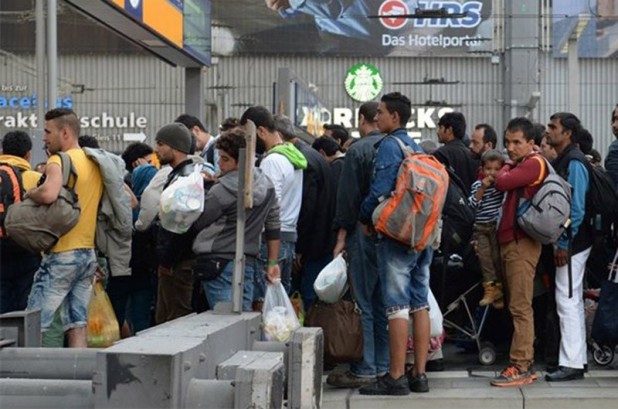The New Observer
December 28, 2015
Only 10 percent of all the nonwhite invaders who have entered Germany have been identified and registered by the police—meaning that well over 1.3 million are completely unknown, official figures have revealed.
Figures released by the official Police Union (Gewerkschaft der Polizei, GdP), indicated that only a tiny number of the invaders entering Germany this year have even been fingerprinted.
Deputy GdP chairman Jörg Radek warned that this poses an extremely “high security risk” to both Germany and all of Europe, as once inside the Schengen borders, the nonwhites can go wherever they want.
In a strongly worded letter to German Chancellor Angela Merkel, Radek warned that since the federal police have no idea who is entering Germany, the ability to gather even basic intelligence about potential terrorists has been completely undermined.
The government’s policy had, Radek wrote, resulted in a “complete disregard of security concerns,” and that the security situation cannot be “reconciled with the political decision to accept asylum seekers.”
Radek wrote that the border police are, “in hundreds of thousands cases,” unable to know who “enters the country, under what name and for what reason. This subverts the ability to enforce internal security.”
Radek also said that the police have been able to positively identify only “10 percent of the refugees.”
Earlier German government figures said that at least 1.5 million invaders had entered Germany already this year. Ten percent of that figure correlates to 150,000—which means that at least 1.3 million have been able to flood in without any control at all.
According to GdP estimates, only around 25 to 30 percent of invaders entering Germany from Austria are carrying passports or identifying documents.
Even this, Radek said, was no guarantee of anything because of the fact that tens of thousands of Syrian passports had fallen into criminal hands as a result of the Syrian “civil war.”
Therefore, he said, “even passport checks cannot rule out any risk.”
Finally, Radek said, the federal police are unable to enforce law and security on the Austrian border anymore.
This was confirmed by Bavarian Interior Minister Joachim Herrmann, who told the German newspaper Welt am Sonntag that there many border crossing points along the Bavarian–Austrian border which are now completely unmanned by the federal police.
Herrmann said that the Bavarian state government had requested of the central government that the Bavarian police take control of these crossing points, but that this request had been denied by the federal authorities.
The refusal is “purely a political decision,” Herrmann said, indicating the depth of distrust which is opening up in the coalition government. “There is indeed no doubt that the Federal Police have a problem with the Bavarian police. It is a purely political decision, in which Berlin is the aggressor,” he said.
According to Herrmann, the Bavarian government could intervene in the border crisis at any stage, but would now instead concentrate on what he called “drag net” operations behind the border—in many cases only a few feet away—to have some sort of control over who is entering the country.
“The security risk is enormous, given the nature of organized crime and the threat of international terrorism,” Herrmann went on to say, adding that any state which fails to comply with the obligation to border security should leave the Schengen area.
He went on to condemn Greece’s complete lack of control at the border as a “farce”—which it is is—but then conveniently ignored the fact that his own government was doing exactly the same thing, letting in untold hundreds of thousands of Third Worlders in a completely uncontrolled manner.

